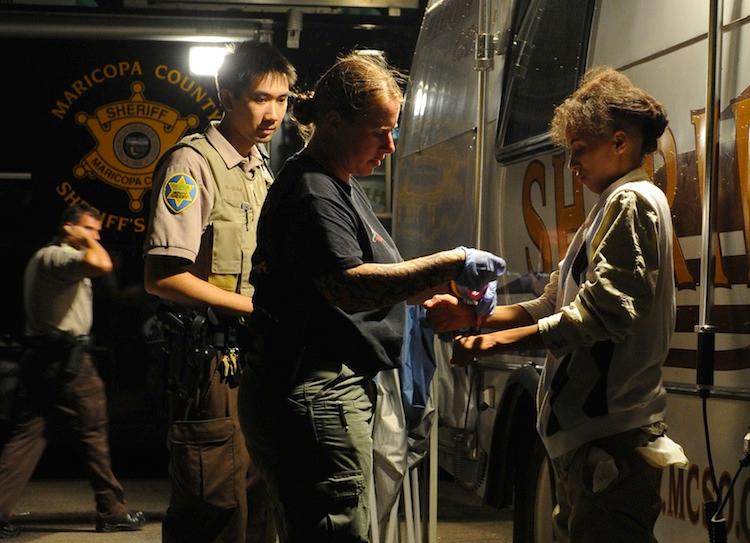The U.S. Supreme Court struck down most of Arizona’s controversial law targeting illegal immigrants in a ruling on Monday.
In a 5-3 decision, the justices rejected parts of the law that made it a crime for illegal immigrants to be without federal identity papers or to seek work.
The court also rejected the legality of police to arrest illegal immigrants without a warrant on the suspicion that they may have committed a crime.
“The national government has significant power to regulate immigration,” Justice Anthony Kennedy wrote in the majority opinion. “Arizona may have understandable frustrations with the problems caused by illegal immigration while that process continues, but the state may not pursue policies that undermined federal law.”
In a concession to Arizona Gov. Jan Brewer, however, the justices upheld a key part of the law which allows Arizona police to stop, question and briefly detain immigrants if they suspect they are in the country illegally.
“Today’s decision by the U.S. Supreme Court is a victory for the rule of law,” the governor said in a statement. “After more than two years of legal challenges, the heart of SB 1070 can now be implemented in accordance with the U.S. Constitution.”
The Obama administration had sued Arizona to block the law from coming into effect. Known as S.B.1070, the Arizona law had become a blue print for similar laws in five other states: Alabama, Georgia, Indiana, South Carolina and Utah.
The Epoch Times publishes in 35 countries and in 19 languages. Subscribe to our e-newsletter.






